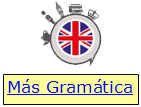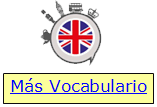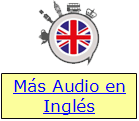|
THE ARTICLE – a, an, the, zero
a/an
Use a and an with single countable nouns.
A countable noun is something that you can count. Like a hot potato. You
can say one plate, two plates, three plates. Plate has a plural form so
it is countable. You can add an ‘s’ to the noun.
We use ‘a’ and ‘an’ with countable nouns.
Use an with a vowel SOUND: a university, a uniform, a European, a Euro.
Use ‘an’ when the word begins with a vowel SOUND – an hour, for example.
Don’t put an extra sound before consonant clusters; for example, a
student (not an student)
a/an is the indefinite article which means it’s not specific. Use it
when you talk about things in general: “Let’s take a taxi” (any taxi)
Use a/an when you talk about something for the first time:
“I bought a new laptop last week.”
“The laptop has a lovely screen.”
a = per : an (per) hour, a (per) kilo, $50 a (per) person
Use a in some expressions such as: a few, a little
I have few friends (negative – not many friends) / a have a few friends
(I’ve got some friends)
I have little time (negative – I don’t have much time, I probably won’t
be able to help you) / I have a little time (I can help you. I have some
time)
The
The definite (or specific) article
Barak Obama is the president of the United States. (there is only ONE
president)
The moon, the sun, the president
Use the when something is already known to the listener or when it was
previously mentioned:
“I’m going to the bank.”
“I’m going to the supermarket.”
“Can you open the door?” (There is only one door and the speaker and the
listener know which door it is)
“Could you open a window?” (There is more than one windown and any
window will do. It’s not a specific window.)
“Coud youopen the window?” (There is only one window)
“We live on planet Earth.”
“The world” (has the definite article “the”)
Use ‘the’ with mountain ranges and rivers: The Pyrenees, The Andes, The
Ganges, The Seine
But NOT usually with mountains: Everest, Kilimanjaro
Use ‘the’ with coasts: The Costa Blanca, The Gold Coast
Use ‘the’ with seas and oceans: The Mediterranean Sea, The Atlantic
Ocean
Use ‘the’ with hotels: The Ritz, The Hilton
Use ‘the’ with museums and galleries: The National Gallery, The British
Museum, the Louvre, The Prado
Use ‘the’ with wars and important events: The Second World War, The
Vietnam War
Use ‘the’ with ordinal numbers. The first, the second, the third, the
25th May etc.
Do NOT use ‘the’ for years: 1970 (not the 1970)
Use ‘the’ with superlatives: “He’s the tallest person in the class.”,
“Bea’s scones are simply the best!”
Use ‘the’ for groups of people and nationalities: The young, the old,
the rich, the deaf, the blind, the elderly, the Spanish, the French.
Compare: “I like French” (The language) – “I like the French.” (group of
people)
Zero Article
Use the zero article When generalising (not specific)
Do NOT use ‘the’ when you speak about people and groups IN GENERAL.
It is NOT correct to say, “The women are better drivers than the
men.”
It IS correct to say, “Women are better drivers than men.” (In general)
“Life is good.” (in general)
“The life of Cervantes.” (a specific life)
Do NOT use ‘the’ with abtract nouns: “Honesty is the best policy.”,
“Love is blind.”
Use ‘the’ when talking about inventions and objects in the singular form:
“The computer has changed the world.”, “The Internet”, “The television”,
“The corkscrew is a handy object.” (Note: you can also use the plural
with no article: “Corkscrews are handy objects.”) corkscrew = sacacorcho
Use ‘the’ with species of animals: “The elephant is an amazing animal.”
It is NOT correct to use the definite article ‘the’ with plural
countable nouns "The elephants are amazing animals."
However, “”The elephant is an amazing animal.” and “Elephants are
amazing animals.” are both correct.
Use ‘the’ with instruments: “The piano is a wonderful instrument.”, “I
play the piano.”, “I like listening to the guitar.”, “I play the flute.”
Use ‘the’ with currencies: The Yen, The dollar, the Euro
With countries, most collections of states and islands have the definite
article ‘the’: The United Kingdom, The United States, The Philippines,
The Seychelles, The Bahamas, The Maldives, The United Arab Emirates.
When you specify the type of country, use ‘the’: The Republic of Ireland,
The People’s Republic of China etc.
Most countries have the ‘zero’ article: France, Spain, Germany,
Argentina, Peru, Mexico, Belgium, Greece etc.
The articles ‘a’, ‘an’ and ‘the’ are not usually stressed in a sentence.
The are pronounced weakly:
“I live in a house.”
There’s an intrusive /y/ sound when the definite article is followed by
a word beginning with a vowel sound. “The elephant” /theyelifant/, “The
Earth” /theyerth/
Do NOT use ‘the’ with possessives: “It’s the Craig’s book.“
is NOT correct. You should say, “It’s Craig’s book.”
Use compound nouns, for example The door of the car = “the car door”,
the door of the classroom = “the classroom door”.
Use ‘some’ when talking about plural countable nouns (as the plural of
‘a’) “Have you got any/some books on diets?”
‘any’ suggests a more ‘open’ choice; “Would you like anything to eat?”
(cualquier cosa), ‘Something’ is more specific: “Would you like
something to eat?” (something specific like a sandwich, for example)
“I like any classical music.” (all classical music)
“I like some classical music.” (only a small section of classical music)
 *Dispones
de más
PODCAST en inglés publicados en los cuadernos anteriores *Dispones
de más
PODCAST en inglés publicados en los cuadernos anteriores
a los que puedes acceder directamente así como al índice de su
contenido. |
|
|
